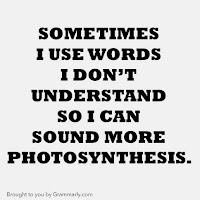 |
| Depositphoto |
Our topic this week is whether we write in other media than our
current one, which for me is fiction novels.
(Do blog posts count? I write a TON of those, for various platforms.)
I have to say that the action/adventure/romance novel is my
natural habitat as a writer and the only thing I have any burning desire to write.
I wrote one poem, an epic fantasy, in iambic pentameter, for
a college English class. I’m not a poet in any way, shape or form.
I wrote one speech and gave it twice in high school.
I wrote three plays in high school, two of which were
performed once each. My principle memory of the experiences is that they ran
wayyyyy short of the desired time slots, much to everyone's surprise. I have no idea why. I’m not a
playwright! All three of these cases were the infamous scenario - “we need a senior day play” or “we
need a Christmas pageant” and hey, she likes to write, she can do it. Uh, no. Not so well.
I wrote articles and columns for the high school newspaper.
In the day job at JPL I wrote copious amounts of nonfiction.
I wrote contracts, purchase orders, procurement justifications, official letters,
draft policies and procedures, employee evaluations, change management plans,
strategic plans, Non Disclosure Agreements, audit plans, audit findings,
responses to audits, summaries of meetings, class materials, Powerpoint decks
galore, memoranda to the file…probably thousands of documents and millions of
words over the years. Because we actually worked for Caltech, on a NASA
contract, the standards were exacting and the expectations high. All the
subject matter was discreet, business sensitive, confidential, so nope, can’t
share any juicy anecdotes or details. Sorry!
It was the job, I did it, I’m very good at writing a cogent
nonfiction document if I say so myself, but it sure isn’t my passion.
I can't draw, dance, sculpt, knit, compose music...trying to be exhaustive here...
So, the shorter answer would be no, I don’t write – or create
- in any media or format other than novels of fiction. I only hit the 'flow' state when I'm immersed in one of my scifi or paranormal worlds, telling the story at hand.
 |
| Depositphoto |









